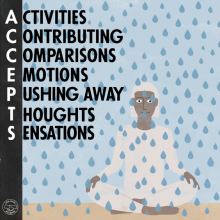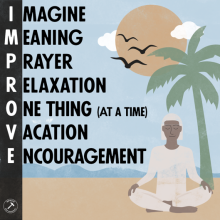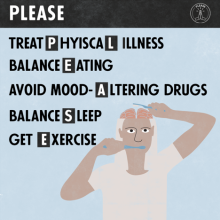Overview
This page details resources for parents and families, including information about ADHD, Autism Spectrum Disorder, Bipolar Disorder, and more.
Resources
Looking for resources for families, including activities for kids at home, educational curriculum, and resources on talking to kids? View our full resource database.
In addition to the sections below on specific child issues, we have videos for parents:
- Please see our short video series for tips on reducing parenting stress, helping kids feel calm, youth anxiety, sleep issues, routines, risky behaviors, and pregnancy well-being.
- There is also a webinar featuring experts on school transitions.
In case of emergency
IF YOUR CHILD IS EXPERIENCING A LIFE-THREATENING MENTAL HEALTH EMERGENCY, PLEASE CALL 911 OR GO TO THE NEAREST EMERGENCY ROOM.
- If access to emergency rooms connected to medical hospitals becomes limited, contact the crisis hotline for your local county mental health department. This information should be readily available online or in your local phone book. Search for “XX County Department of Mental Health.”
- You may also call one of the 24/7 emergency hotline numbers below:
- National Suicide Prevention Lifeline: (800) 273-TALK
- Crisis Text Line: Text START to 741-741
- View Parenting Resources for Suicide Prevention in Teens from The American Academy of Pediatrics.
Attention deficit hyperactivity disorder
This expertise is provided by Jennifer Ly, PhD, and Lauren Haack, PhD.
Children with inattention and disruptive behavior often struggle in the areas of home routines, academic work, and relationships with family and peers. There are many resources available for supporting children with ADHD in these areas which may be helpful for families. Some overarching strategies include:
- Setting clear, manageable expectations for what you expect of your child each day regarding school work and home routines (e.g., chores and self-care)
- Providing frequent and specific praise for behaviors you’d like to see more of (e.g., independence/on-task behavior, kind words with others, maintaining a safe body)
- Establishing rewards or privileges for routines and challenging tasks
- Providing multiple opportunities for breaks and physical activity.
Children with ADHD often respond well to specific strategies and approaches that cater to their unique needs. Children with ADHD respond well when:
- Academic tasks are broken down into manageable steps
- They are provided with breaks between activities
- Material is connected creatively to something they are interested in (e.g., math problems about outer space)
- They are provided with scaffolding from parents as needed.
Some children may need more support with getting started or staying on task than others. You might try using a timer for both easy and the harder tasks. When possible, provide hands-on opportunities for learning. Reach out to your child’s teacher or school if you are struggling to manage homeschooling your child. In a challenging time, it’s important to be mindful that parents and children are adjusting to new routines. It may be helpful to adjust your expectations for what can be accomplished as we all adjust during this transition time.
- Tips for homeschooling children with ADHD
- Managing homeschooling (One-hour webinar by Ann Dolin, MEd)
- Grief Interventions for Children With ADHD is a resource that describes the different ways in which children with ADHD can experience loss, and how parents, teachers, and counselors can tailor interventions to the child's specific needs.
Autism spectrum disorders
This expertise is provided by Whitney Ence, PhD.
As described above, all children and young adults, neurotypical or not, require support from caregivers during times of stress, coping with the unknown, and changes in routine. Not an easy formula for those of us who already struggle with rigidity! Individuals with autism and other neurodevelopmental challenges may need additional support to understand the news and adapt the changes. There may be additional challenges related to comprehension, communication, insistence on sameness, and likelihood of anxiety and depression.
It is important to follow this site’s general recommendations for families, about how to create safety and routine. In addition, you can also help offer opportunities for expression, prioritize coping and calming, maintain routines when possible, and see this as an opportunity to build new routines, foster connections. If therapies are hard to get access to, parents may want to check out the OT Toolbox, which has free tools, activities, and resources for occupational, speech, and physical therapy at home.
Here are resources for more specific ways to do this:
- Resources for families of children with ASD
- A comprehensive guide for supporting individuals with ASD, including hand washing and coping through uncertain times by our colleagues at the University of North Carolina
- Visual tools to help with hand washing
Emotion regulation issues
When family members have heated conflicts and emotion-regulation issues, it is critical to use skills to quickly de-escalate. Highly stressful situations require adaptability and crisis survival skills. Dialectical behavioral therapy (DBT) offers such skills for adults and children. It is particularly for borderline personality features, but it offers helpful skills for everyone.
Stressful situations make us both scared and angry, with thoughts such as “It shouldn’t be this way.” These intense emotions can block our ability to accept our current reality and adapt. Radical acceptance may help us. To accept the situation doesn’t mean we approve of it, we don’t. It may help to remind us we cannot change certain situations right now. Allow feelings of sadness and grief, and breathe into them. Life is still worth living even when we are in pain.
Surf the wave!
To help us tolerate intense emotions, there are many ways to "surf the wave" of emotion until it passes. Strong emotions and urges have a beginning, middle and end. They don’t last long, and we can do things to help them end even sooner. Think of a surfer on a wave, what tips will you use to surf the wave and get to the calm sooner?
The full DBT program includes core life skills for good emotional intelligence, distress tolerance, communication, and emotion regulation. We focus on 3 crisis skills, summarized by the images below, that can help us tolerate the stress and emotional discomfort of the current situation. An accompanying video leads us through each one.
ACCEPTS
This set of tips lets us distract ourselves from the spiral of negative emotions so we can return to our wise mind. The video describes these steps. The distraction from intensity can be as simple as comparing yourself to those less fortunate, watching a funny video, petting your cat, or changing your body state which changes your mind (like chewing in ice, taking a hot or cold shower, doing push-ups).
IMPROVE the moment
Try one of these skills to get a break from intense negative emotion. Imagine relaxing scenes --visualization is powerful. Finding meaning in the situation that is stressing you out can help. Use any prayer you find comforting. Focus all your attention on one small thing in the moment. Focusing on the body, on breathing or other sensations (tasting, smelling, listening), creates some space for strong emotion to dissipate. Progressive muscle relaxation or a body scan can help. Take a mini-vacation in the moment--change up your surroundings by going outside or to a different room. Say encouraging things to yourself like “I’m doing the best I can. This won’t last forever.”
PLEASE
Keeping mind-body balance by healthy lifestyle, is very helpful in hard times, as we reviewed in the General Coping section above.
PLEASE:
Treat PhysicaL illness
Balance Eating
Avoid Mood-Altering Drugs
Balance Sleep
Get Exercise
Bipolar disorder, serious depression or anxiety, schizophrenia, and related disorders
This expertise is provided by Descartes Li, MD.
Try to continue any current mental health care services if possible. See the general tips for coping and keeping structure at home. Some additional considerations include:
Medication management
- During a difficult time, it may be difficult to keep up on medication refills. Ask your provider about a 90-day supply of medication instead of 30 days (except for controlled substances).
- Contact your provider now to develop a plan if you receive injectable medication and/or regular labs for monitoring. If taking injectables, ask your provider to order a back-up supply of dose equivalent pills in case you have difficulty traveling or leaving your household.
- If you are taking a controlled substance, remind your provider of the exact date a new monthly supply is due.
- If you are taking clozapine, ask your provider to write an "as needed for insomnia" prescription of 50-100mg each evening that can serve as a back-up supply if you can't get a blood test on time.
- If for any reason you anticipate running out of a medication, start reducing the dose by 10% every day instead of taking the full dose right up until the day you will run out; this will help minimize withdrawal reactions (but probably won’t eliminate them).
Give extra space
Try to give others a little extra space when needed. If family members aren’t sure what a loved one needs, it’s important to just ask.
Consistent schedule
Keeping a regular schedule can be challenging for individuals with mental-health disorders, especially if there is a disruption to the external structure of school, work, or treatment activities. Try to create a consistent schedule at home, including getting outside for fresh air daily. But don’t be too rigid and allow flexibility if people need more sleep than usual to cope with increased stress levels.
Stay connected socially
Stay connected in whatever way feels good. Try to stay connected to the supportive people in your life through texting or Skyping or via the internet, even if you can’t see them in person.
If you have a relapse prevention plan in place, use it to keep an eye-out for early warning signs and symptoms. If you don’t have a plan yet, consider creating one and sharing it with loved ones and providers so everyone is on the same page. Here are three resources:
Learning resources for children with special needs
Bay Area school closures mean a loss of resources for children with special needs. Many resources can be found through Support For Families. Their phone number at (415) 282-7494. You can also email them at [email protected] and [email protected].
- Guidance for use of AAC devices in the home for families and students with limited language and/or comprehension ability
- AAC for caregivers (Video)
- Terrific Talkers: A website filled with free and enriching activities for all ages online.
- Articulation and Phonology: Online articulation games for elementary and middle school levels
- Online language and articulation game for elementary and middle school levels
- Vocabulary Spelling City: Free access with code VSCFree90 during registration
- Duolingo ABC: Free early literacy app offering a fun, hands-on way for your child to learn to read
- The Autism Tool Kit contains resources to help children, teens, and adults with autism interact successfully at home, in school, and in the workplace. It includes:
- How to Write Your Own Social Stories: Social stories are easy to create once you understand how they work. This site tells you how to write your own social stories.
- Have favorite stories read to you/your child by movie stars
- ABCya!: Practice math and reading skills
- Seussville: Read and play games with Dr. Seuss and his friends
- PBS Kids: Hang out with favorite characters while learning
- Switcheroozoo: Watch, listen, and play games to learn all about amazing animals. Promotes language and vocabulary development
- PBS Kids: Vocabulary & language development
- Growing Book by Book: Read aloud, storytime, sing-along, and more
- ABC Mouse: Use code SCHOOL2568
- Squiggle Park: Reading skill building for ages 3 and up
- Scholastic: Day-by-day projects to keep kids reading, thinking, and growing
- Podcasts for Kids: Full list of podcasts you can play on your Google Home or other Google Assistant devices
- Easy Baking Recipes: A list of family-friendly recipes you can do with the kids
- Educational resources for learning from home: A massive trove of educational resources for kids that is updated every hour.
- Institute of Education Sciences-funded researchers: Activities for students with or at risk for disabilities, including resources for teaching math and resources for early readers:
- Evidence-based math for resource educators
- Pirate Math Equation Quest
- 5 Things Parents should know: Homeschooling and Reading.
- Learning games and technologies: Appropriate across different age spans and across a wide range of educational topics such as for early learning, STEM, reading, and social studies. These technologies—many of which IES has funded—are available for free through the end of the school year.





